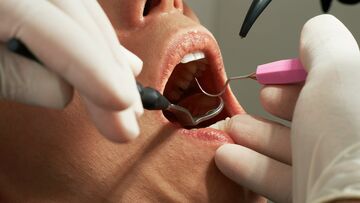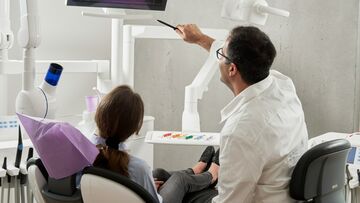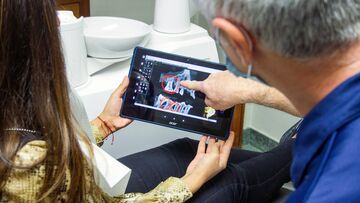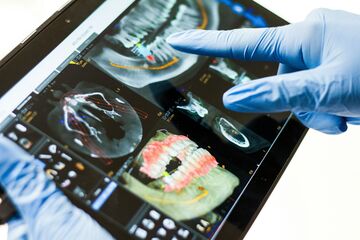
Learning that you need to have an X-ray at the dentist can be daunting, particularly if you’ve never had one before. Dental X-rays are routine and not something to be afraid of. That said, there are a few things you should be aware of before you have an X-ray, and it’s normal to have questions before you have any dental treatment.
In this guide, we’re exploring some of the most common questions patients have before an X‑ray and everything you need to know about the process.
What is a dental X‑ray used for?
Dental X‑rays give your dentist a more comprehensive view of your teeth and jaw bone. While the dental examination can let them see everything happening above the surface, an X‑ray lets them see the roots of the teeth, the connective tissue and the jaw bone. It helps them to confirm diagnoses for conditions like decay or issues with your tooth roots.
How often do you need an X‑ray?
Your dentist may recommend an X‑ray if they need to investigate an issue further. You might also be offered a routine X‑ray once a year as part of your routine checkups. This can help to spot small issues before they become more serious. If you are offered an X‑ray, it doesn’t mean that something is wrong, it is more likely that your dentist would like to carry out a routine check.
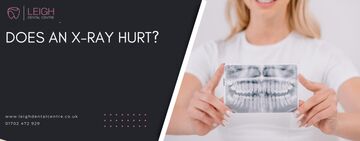
Does an X‑ray hurt?
No, the process should not hurt and you don’t need a local anaesthetic. When you have a dental X‑ray, your dentist will position you in front of the X‑ray machine and you will rest your forehead against the machine. A bit is placed in your mouth and you bite down on this. The technician will then leave the room and activate the X‑ray. The machine will slowly rotate around your head. You don’t have to do anything except stay very still. The X‑ray images are processed and sent to a computer for your dentist to examine.
Is there anyone who shouldn’t have a dental X‑ray?
X‑rays are safe, but there are some people that need to be protected from the radiation. If you are pregnant or think you might be pregnant, you should let your dentist know during your appointment. While X‑rays are safe for pregnant patients, you do have the right to refuse one. The levels of radiation used are extremely low and are not directed at your pelvic area, so there is very low risk to your child.
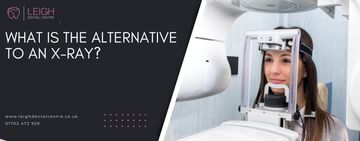
What is the alternative to an X‑ray?
Alongside an X‑ray, you could be offered a CT scan to get an even more detailed view of your mouth and jaw. This is commonly offered before complex treatments like dental implants as it will give your dental surgeon a detailed view of the bone structures and the soft tissue. Like an X‑ray, a CT scan is very safe and will not hurt.
Closing thoughts
If you are nervous about your X‑ray, you should raise your concerns with your dentist. They can help to put you at ease and make you feel more comfortable. If it helps, they can explain the steps involved in taking an X‑ray before the procedure to help put you at ease.
X‑rays offer the easiest way for your dentist to identify issues with your teeth before they become more problematic. They are very safe and not something to be concerned about. If you are offered an X‑ray, it is more likely to be a preventative step to ensure your teeth are healthy.
Ready to book your next dental checkup? Get in touch with our team today!
Contact us to make an appointment
Exclusive Offer
Airflow stain removal from our hygienist
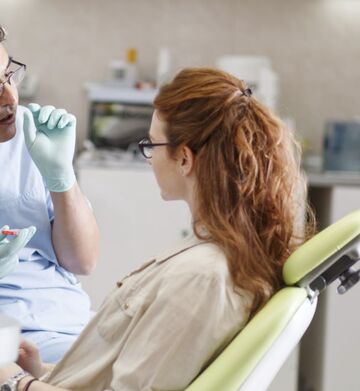
Time for you perfect smile?
Book your consultation today
When visiting our practice you know you are visiting the dental professionals trained to the highest standards. You are greeted by our welcoming staff, who share the same aim, to make your visit with us as comfortable and stress free as possible.

